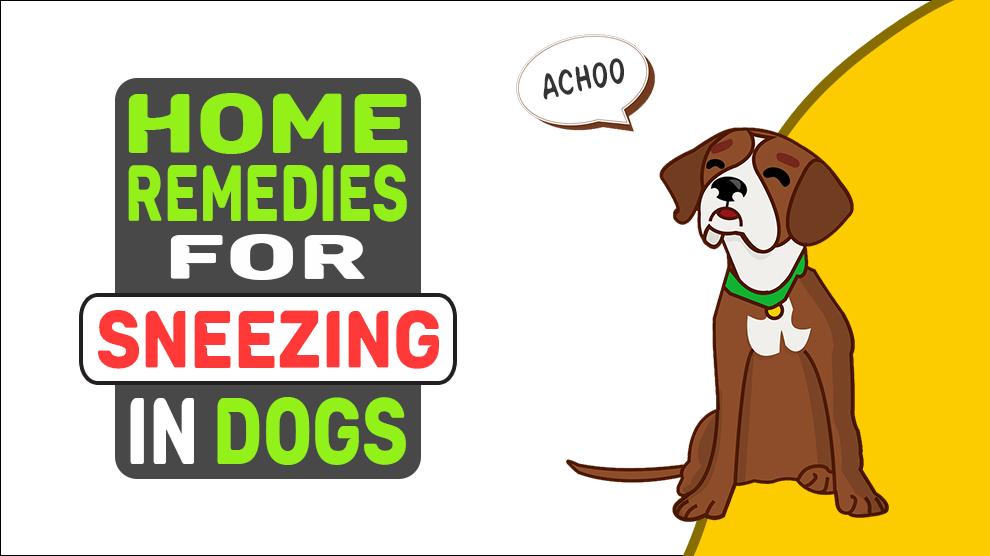Possible Diseases For Sneezing
- Fungal Rhinitis - Read More -> Fungal Rhinitis In Dogs - Symptoms And Treatment
- Aussie Flu - Read More -> Aussie Flu In Dogs - Symptoms, Treatment & Prevention
- Ehrlichiosis - Read More -> Ehrlichiosis In Dogs: Signs, Symptoms & Treatments
- Nasal Cancer - Read More -> Nasal Cancer In Dogs: Facts, Symptoms & Treatment
- Canine Influenza Virus - Read More -> Canine Influenza Virus - Causes, Symptoms, & Treatment
- Cleft Lip And Cleft Palate - Read More -> Cleft Lip And Cleft Palate In Dogs
- Upper Respiratory Tract Infection - Read More -> Upper Respiratory Tract Infection In Dogs - Symptoms, Causes, And Treatments
Home Remedies For Sneezing
Sneezing is a common occurrence in dogs, just like in humans. It can be caused by various factors such as allergies, infections, irritants, or foreign objects. While occasional sneezing is not usually a cause for concern, persistent sneezing may indicate an underlying health issue that requires veterinary attention.
Here are some home remedies that may help alleviate sneezing in dogs.
- Steam Therapy
Steam therapy can help loosen up mucus and relieve nasal congestion, which can help reduce sneezing in dogs. You can create a steam room by running a hot shower and bringing your dog into the bathroom. Alternatively, you can use a humidifier to add moisture to the air. Keep your dog in the steam room for about 10-15 minutes, making sure that they don't get too hot. Repeat this process 2-3 times a day until your dog's sneezing subsides.
- Saline Solution
Saline solution is a natural remedy that can help flush out nasal passages, reduce inflammation, and soothe irritated nasal tissues. You can make a saline solution by mixing one teaspoon of salt with one cup of warm water. Use a clean dropper or syringe to apply a few drops of the saline solution into each nostril of your dog. Repeat this process 2-3 times a day until your dog's sneezing improves.
- Herbal Remedies
Herbal remedies such as chamomile, echinacea, and licorice root can help reduce inflammation, soothe irritated nasal tissues, and boost the immune system. You can use these herbs as a tea, tincture, or supplement. Consult with a veterinarian or a holistic practitioner before using herbal remedies for your dog.
- Honey
Honey is a natural anti-inflammatory and antibacterial agent that can help soothe irritated nasal tissues and reduce sneezing in dogs. You can add a teaspoon of honey to your dog's food or give it to them directly. Make sure to use raw, unpasteurized honey, as processed honey may contain added sugars or other additives.
- Vitamin C
Vitamin C is a natural antioxidant that can help boost the immune system and reduce inflammation in dogs. It can be found in fruits such as oranges, kiwis, and strawberries, or given as a supplement. Consult with a veterinarian before giving your dog a vitamin C supplement, as too much vitamin C can cause gastrointestinal upset.
- Good Hygiene
Good hygiene can help prevent the spread of infections and irritants that can cause sneezing in dogs. Regularly clean your dog's bedding, toys, and food/water bowls to reduce the risk of exposure to allergens or pathogens.
Keep your dog away from cigarette smoke, dust, and other irritants that may trigger sneezing. While these home remedies may be helpful in reducing sneezing in dogs, it is important to consult with a veterinarian if your dog's sneezing persists or worsens. Persistent sneezing may be a symptom of an underlying health issue that requires medical attention.
Additionally, some of these remedies may not be suitable for all dogs, particularly those with underlying medical conditions or allergies.
In summary, sneezing in dogs can be caused by various factors and can be treated with natural remedies. Steam therapy, saline solution, herbal remedies, honey, vitamin C, and good hygiene are some of the home remedies that may help alleviate sneezing in dogs.
However, it is important to consult with a veterinarian before using any new treatments and to seek medical attention if your dog's sneezing persists or worsens.

















